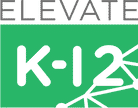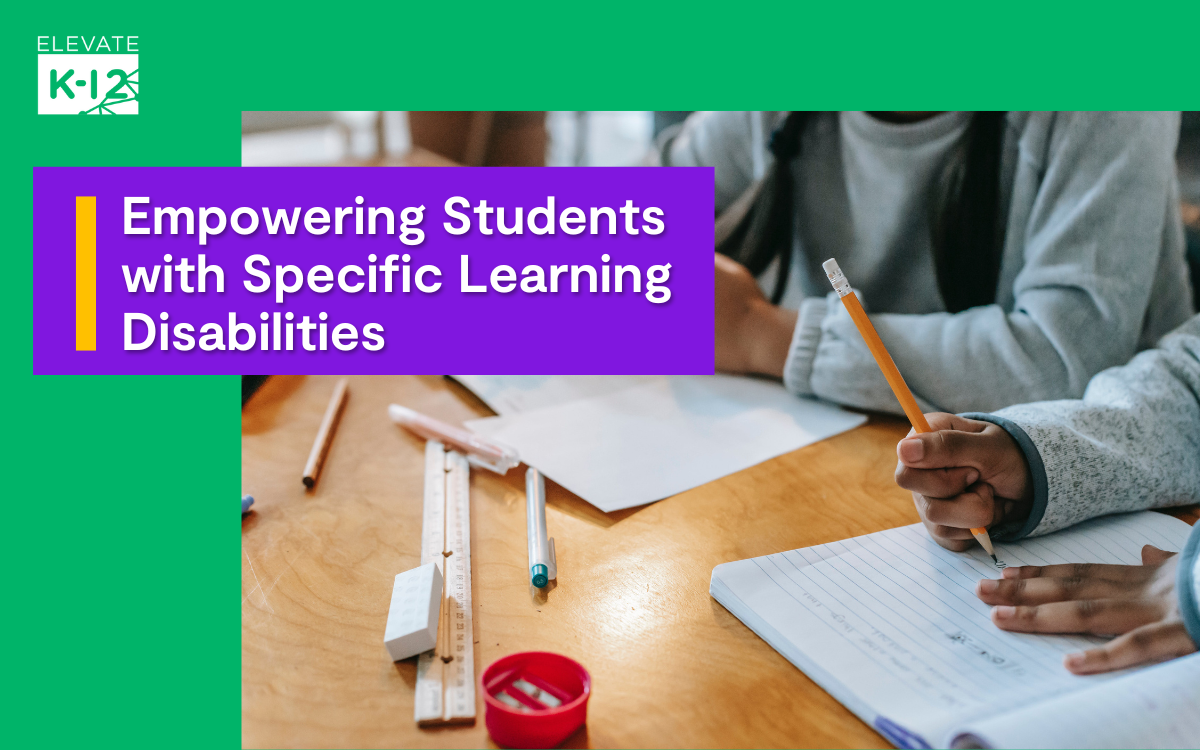In the quest for educational equity, it is essential that all students, especially those with specific learning disabilities (SLDs) in reading and math, receive the support they need to succeed.
For these students, high-quality instruction and access to grade-level curriculum within the least restrictive environment (LRE) are vital components for achieving academic success and improving learning outcomes. As of the 2024 data from the U.S. Department of Education’s Office of Special Education Programs (OSEP) and the National Center for Education Statistics (NCES), approximately 7% of students in U.S. public schools are identified as having specific learning disabilities (SLDs).
Here are some key points:
- Prevalence: About 4.8 million students are identified with specific learning disabilities.
- Categories: These disabilities typically include conditions such as dyslexia, dyscalculia, and dysgraphia.
- Educational Context: SLDs represent one of the largest categories of disabilities under the Individuals with Disabilities Education Act (IDEA).
Ensuring that students with SLDs can perform at or above the level of their non-disabled peers is not just a matter of educational best practices but a fundamental right that helps to promote inclusivity and equity in our schools.
The Significance of High-Quality Instruction
Students with specific learning disabilities face unique challenges that can make it difficult to grasp core academic concepts, particularly in reading and math. High-quality instruction is critical for helping these students overcome these challenges. What does high-quality instruction entail? It involves using evidence-based teaching methods that are proven effective for students with learning disabilities. These methods include differentiated instruction, targeted interventions, and the use of assistive technologies.
Educators can create a more inclusive and supportive learning environment by employing strategies that cater to diverse learning styles.
Effective instruction for students with SLDs should be tailored to their individual needs, addressing their specific areas of difficulty while reinforcing their strengths. Educators can create a more inclusive and supportive learning environment by employing strategies that cater to diverse learning styles. This approach helps students with SLDs make significant progress and ensures they remain engaged with the grade-level curriculum, thereby reducing the risk of falling behind their peers.
The Role of the Least Restrictive Environment
The principle of the least restrictive environment (LRE) is a cornerstone of special education. It emphasizes that students with disabilities should be educated alongside their non-disabled peers to the maximum extent possible. The LRE supports the idea that inclusion benefits all students by promoting social interactions, peer modeling, and a sense of belonging.
The challenge lies in balancing the need for specialized support with the goal of providing a rich, inclusive educational experience.
However, integrating students with SLDs into general education classrooms requires thoughtful planning and support. These students may need additional resources, accommodations, and differentiated instruction to access the general curriculum effectively. The challenge lies in balancing the need for specialized support with the goal of providing a rich, inclusive educational experience. Flexible scheduling that allows focused time in a resource environment, along with dedicated time in general education classes is critical.
Elevate K-12: Bridging the Gap with Certified Special Education Teachers
Elevate K-12 is dedicated to bridging the need for high-quality instruction, grade-level curriculum, and the least restrictive environment for students with specific learning disabilities. Our approach is centered on providing certified special education teachers who deliver live, individualized instruction in resource room environments. The LIVE teaching model ensures that students receive the specialized support they need while remaining integrated into the general education setting.
Our certified special education teachers are equipped with the expertise to design and implement personalized education plans that address each student’s unique learning needs. Through LIVE instruction, they offer real-time support and guidance, helping students with SLDs tackle challenges in reading and math while remaining connected to the grade-level curriculum.
LIVE teaching ensures students receive the specialized support they need while remaining integrated into the general education setting.
Our teachers employ evidence-based strategies in resource room environments to provide targeted interventions that complement the general classroom experience. This approach allows students to receive focused support in areas where they struggle without isolating them from their peers. By working closely with general education teachers, our special education professionals ensure that accommodations and modifications are seamlessly integrated into the overall learning experience.
Achieving Improved Learning Outcomes
When students with specific learning disabilities receive high-quality instruction and access to grade-level curriculum in the least restrictive environment, the results are remarkable. These students can achieve learning outcomes that are on par with or even exceed those of their non-disabled peers. They gain confidence, develop critical academic skills, and experience a greater sense of belonging within their educational community.
At Elevate K-12, we are proud to contribute to this positive change by providing certified special education teachers who offer live, individualized instruction in a resource setting. Our commitment to high-quality support and inclusive education helps ensure that every student, regardless of their learning challenges, can succeed.
The importance of delivering high-quality instruction and adhering to the least restrictive environment principle cannot be overstated. By integrating these elements into educational practice, we create a learning environment where all students have the chance to excel. Elevate K-12 is dedicated to making this vision a reality, supporting students with specific learning disabilities in reaching their full potential and achieving academic success.
If you’re interested in learning more about how Elevate K-12 can support your students with specific learning disabilities, get in touch with a member of our team.

About the Author
Dr. Khechara Bradford has over 23 years of public education experience, serving in several leadership roles including the Executive Officer of Specialized Learning & Services for Houston Independent School District (TX), Deputy Superintendent of Providence Public School District (RI), Chief of Curriculum & Instruction for Spring ISD (TX), and Assistant Superintendent of Curriculum for Fort Worth ISD (TX). Dr. Bradford received her doctorate in Educational Leadership and Policy with an emphasis on Special Education from the University of Houston.

